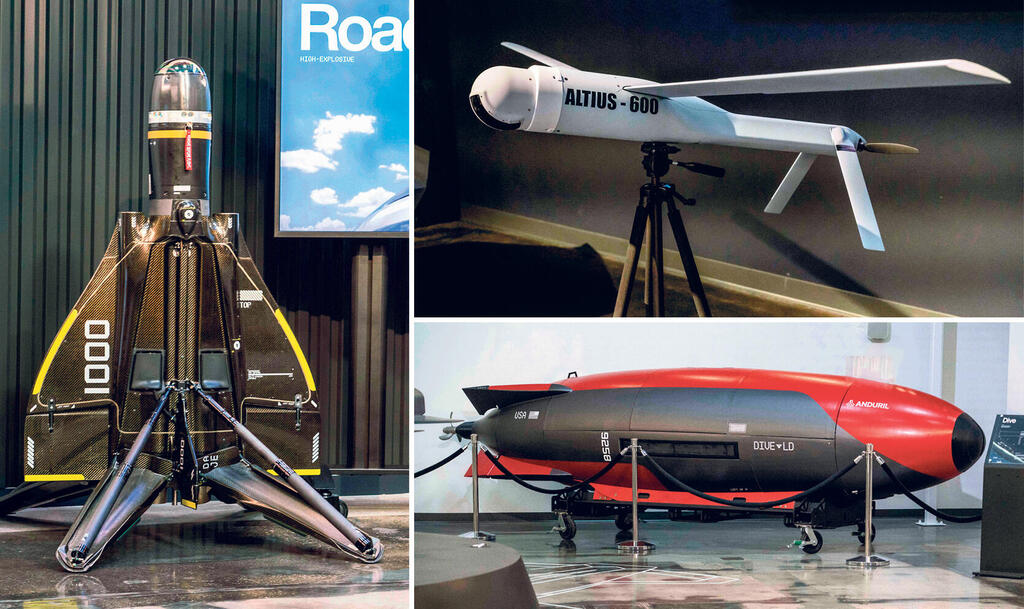
Analysis
AI drives defense innovation with OpenAI and Anduril leading the way
Cutting-edge AI technology is changing the landscape of defense and security.
OpenAI, the generative artificial intelligence (GenAI) powerhouse, is entering the defense sector through a partnership with defense technology startup Anduril. The collaboration, announced last week, aims to incorporate OpenAI’s advanced AI models into the drone defense systems that Anduril develops for the U.S. military. This marks OpenAI’s first collaboration with a commercial weapons manufacturer.
“OpenAI builds AI to benefit as many people as possible, and supports U.S.-led efforts to ensure the technology upholds democratic values," said Sam Altman, OpenAI's CEO. "Our partnership with Anduril will help ensure OpenAI technology protects U.S. military personnel, and will help the national security community understand and responsibly use this technology to keep our citizens safe and free."
This partnership signifies a shift for OpenAI, which has previously committed to avoiding the use of its GenAI models for offensive weapons systems. While the company has existing collaborations with security agencies, including a cybersecurity deal with the U.S. Department of Defense, this is the first instance where its technology will directly contribute to the development of weapons systems.
Anduril specializes in advanced systems that detect, assess, and monitor drones. If a drone is identified as a threat, the military can deploy electronic jamming or counter-drones to neutralize it. The partnership will explore how OpenAI’s models can process sensitive data in real-time, reduce the workload of human operators, and enhance situational awareness. OpenAI’s models will be trained using Anduril’s data, with the goal of protecting U.S. military personnel and allied forces.
“Anduril builds defense solutions that meet urgent operational needs for the U.S. and allied militaries,” said Brian Schimpf, co-founder & CEO of Anduril Industries. “Our partnership with OpenAI will allow us to utilize their world-class expertise in artificial intelligence to address urgent Air Defense capability gaps across the world. Together, we are committed to developing responsible solutions that enable military and intelligence operators to make faster, more accurate decisions in high-pressure situations.”
Anduril, valued at $14 billion, signed a $200 million contract in November to supply its drone defense system to the U.S. Marine Corps.
A Controversial Move in Tech and Defense Collaboration
OpenAI’s foray into the defense sector reflects a broader shift in the relationship between technology companies and military applications. In 2018, Google faced intense backlash from its employees and the public, leading it to cancel a Pentagon contract aimed at improving drone object recognition using AI.
However, the current landscape shows a changing sentiment. With increasing geopolitical tensions, particularly between the U.S. and China, companies are recognizing the strategic importance of their technology in national security.
"The accelerating race between the United States and China to lead the world in advancing AI makes this a pivotal moment. If the United States cedes ground, we risk losing the technological edge that has underpinned our national security for decades. The decisions made now will determine whether the United States remains a leader in the 21st century or risks being outpaced by adversaries who don’t share our commitment to freedom and democracy and would use AI to threaten other countries. Bringing together world-class talent in their respective fields, this effort aims to ensure that the U.S. Department of Defense and Intelligence Community have access to the most advanced, effective, and safe AI-driven technologies available in the world," read OpenAI and Anduril's press release.
Industry Players and Political Connections
OpenAI’s collaboration with Anduril is not an isolated development. In November, rival AI firm Anthropic announced a partnership with Palantir to provide the U.S. military access to its AI models. Both deals share a connection with Peter Thiel, a prominent investor and co-founder of Palantir. Thiel’s venture capital fund, Founders Fund, is a major investor in Anduril and led a $1.5 billion funding round for the company in July.
Anduril’s leadership is also closely tied to Thiel. Chairman and co-founder Trae Stephens previously worked at Palantir and Thiel’s foundation. Co-founder Palmer Luckey, best known for selling Oculus VR to Facebook for $2 billion in 2014, is another key figure. Luckey, a staunch Trump supporter, has deep connections to the Republican political establishment, including his brother-in-law Matt Gaetz, a prominent conservative politician.
A New Era of Tech-Defense Collaboration
As tensions with China heighten, more technology companies are expected to engage in national security initiatives. Industry giants like Google, Microsoft, Apple, and Meta, which often clashed with Trump’s administration during his first term, have recently shifted to a more conciliatory stance. Cooperating with defense agencies and contributing to national security could be seen as a strategic move to avoid regulatory conflicts under Trump’s leadership.
OpenAI’s partnership with Anduril may mark the beginning of broader involvement from tech companies in defense, setting the stage for a new era of collaboration between Silicon Valley and national security institutions.















